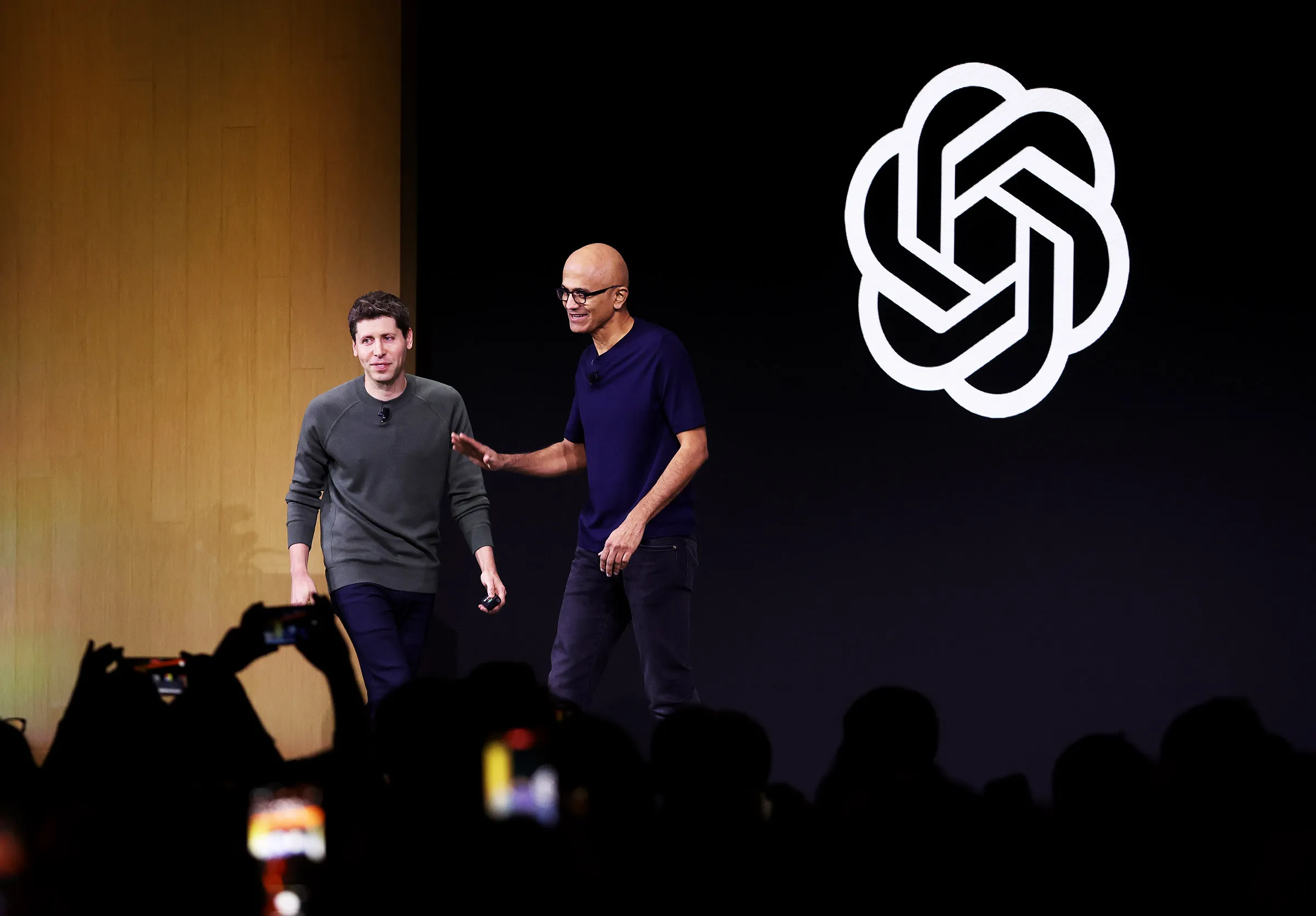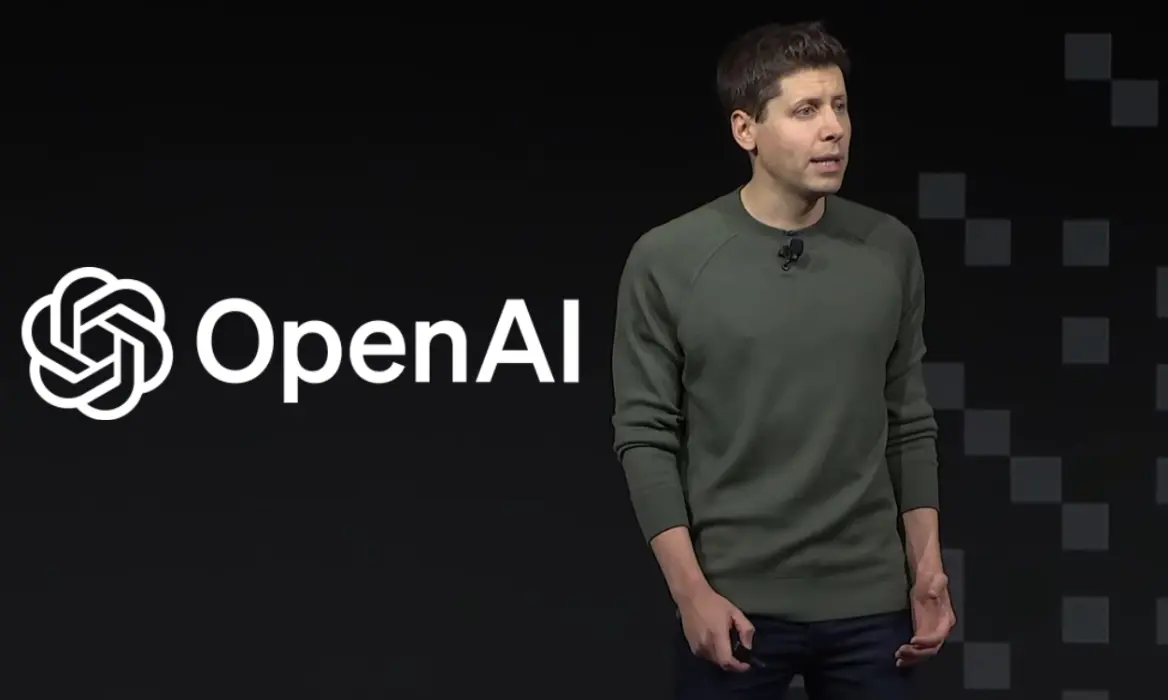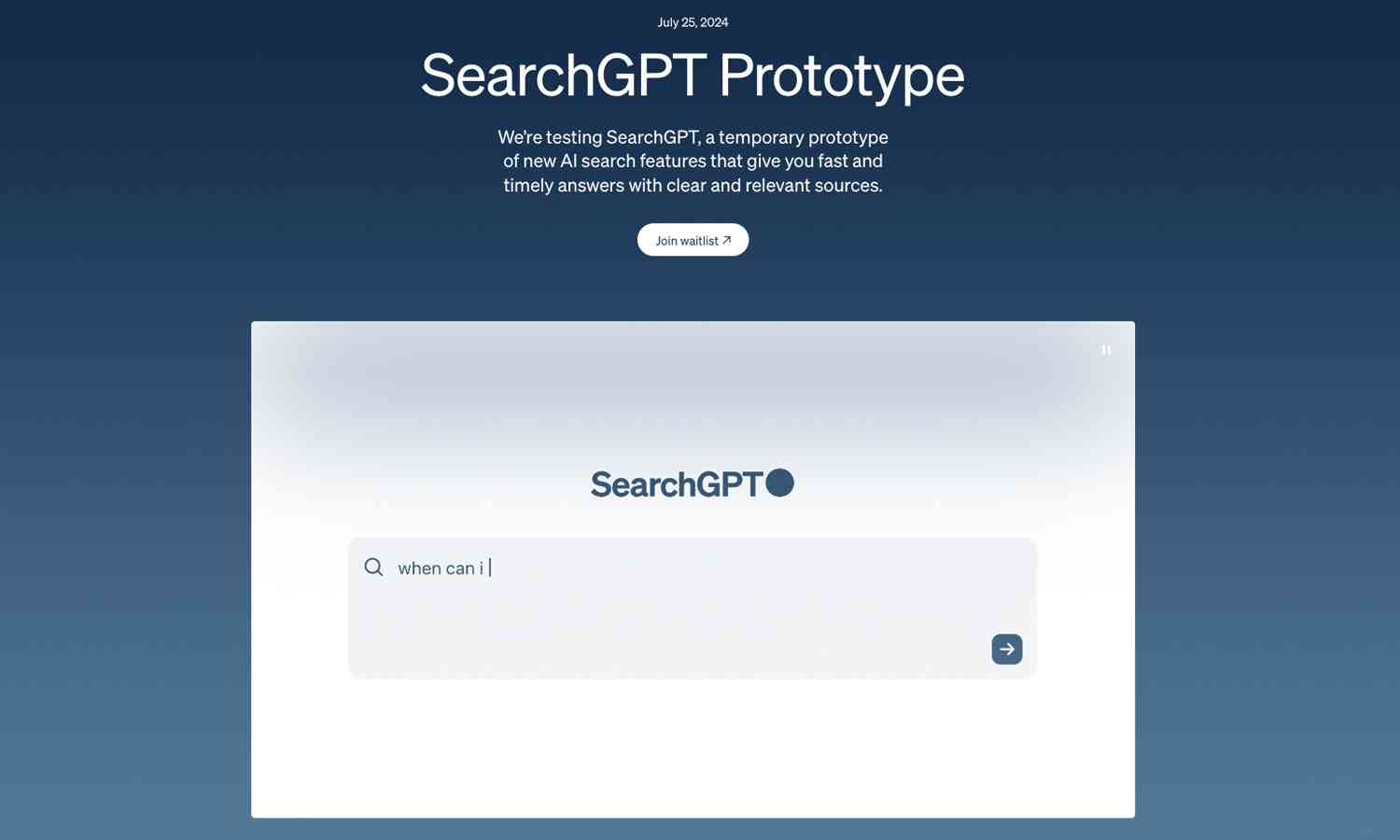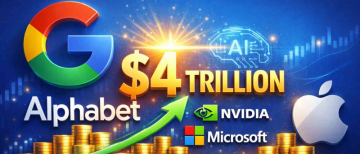In a significant development, OpenAI has unveiled a prototype of its latest innovation in artificial intelligence (AI) search technology, aptly named SearchGPT. This announcement came on Thursday, just a day after Microsoft introduced its own generative search feature for Bing. At present, SearchGPT is available in a limited release, with access restricted to a select group of users and publishers. OpenAI has also initiated a waitlist for those eager to experience this cutting-edge platform. The introduction of SearchGPT positions OpenAI alongside notable competitors in the AI search arena, such as Google's AI Overviews and Perplexity AI.

Features and Interface of OpenAI’s SearchGPT
In a statement on its official website, OpenAI shared details about its foray into the search engine sector. The company stated, “We are testing SearchGPT, a prototype featuring new search capabilities designed to leverage the strengths of our AI models, combined with web information, to deliver fast, timely answers with clear and relevant sources.”
From the visual previews provided by OpenAI, the SearchGPT interface features a prominent text box and a button to initiate the search. Upon engaging the search function, users are presented with a results page that boasts a minimalist design. The layout prioritises visual clarity, with relevant images, tables, and other graphical elements displayed at the top, while comprehensive information is organised into paragraphs and bullet points below. At the bottom of the results page, sources are neatly indicated in small rectangular tiles, ensuring transparency and credibility.
The Ambition and Potential Impact of SearchGPT
OpenAI's SearchGPT aims to address the common challenge of finding precise answers online with a single search attempt. According to the company, this new tool combines the conversational abilities of its advanced AI models with real-time data sourced from the web. A distinctive feature of SearchGPT is its capacity to handle follow-up questions, using the context from previous queries to refine and enhance responses. However, OpenAI has not disclosed specific details regarding the AI model underpinning this new tool.
Market Reactions and Industry Implications
The emergence of AI-driven search engines has sparked concerns among publishers, bloggers, and website owners about potential declines in web traffic. In response, OpenAI has emphasised its commitment to collaborating with publishers, seeking their feedback to shape the development of SearchGPT. The company also announced plans to introduce tools that allow publishers to manage their visibility within SearchGPT.
“Crucially, SearchGPT is dedicated solely to search and is distinct from the training of OpenAI’s generative AI foundation models. Websites can appear in search results even if they opt out of generative AI training,” OpenAI clarified.
The rollout of SearchGPT could have significant ramifications for Google, which currently dominates the search engine market. Since the launch of ChatGPT in November 2022, investors in Alphabet, Google’s parent company, have expressed concerns about OpenAI potentially capturing market share by offering consumers innovative ways to search for information online. With this prototype, OpenAI is exploring the possibility of providing a more natural, intuitive search experience, allowing users to ask follow-up questions in a conversational manner.

“We believe there is ample room to improve the current state of search,” OpenAI CEO Sam Altman remarked in a post on X (formerly known as Twitter).
Following the announcement, Alphabet's shares dropped by over 3%, closing at $167.28, while the Nasdaq index saw a decline of less than 1%.
In a related development, Google launched its AI Overview feature in May, described by CEO Sundar Pichai as the most significant advancement in search technology in 25 years. This feature, currently available to a limited audience, offers a summary of responses to queries at the top of Google Search. Despite Google's extensive development efforts, public criticism emerged swiftly as users reported encountering nonsensical or inaccurate results from the AI feature, with no option to opt out.
Recently, OpenAI has made strategic hires and partnerships, including an integration between ChatGPT and Apple's Siri. The company appointed Sarah Friar, former CEO of Nextdoor and finance chief at Square, as Chief Financial Officer, and Kevin Weil, previously a senior executive at Planet Labs, Twitter, Facebook, and Instagram, as Chief Product Officer.
These appointments bolster OpenAI’s executive team as the company’s large language models gain prominence across the technology sector, amidst intensifying competition in the burgeoning generative AI market.
Inputs by Agencies
Image Source: Multiple Source
Ⓒ Copyright 2024. All Rights Reserved Powered by Vygr Media.






















